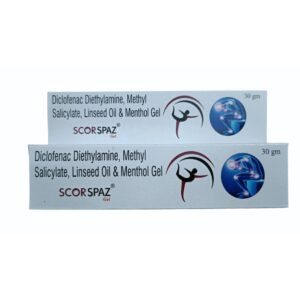LINSEED OIL + NOT AVAILABLE + METHYL TESTOSTERONE + DICLOFENAC DIETHYLAM INE
Linseed Oil: Linseed oil, also known as flaxseed oil, is a dietary supplement derived from the seeds of the Linum usitatissimum plant. It contains high levels of alpha-linolenic acid (ALA), an essential omega-3 fatty acid.
Linseed oil is commonly used as a nutritional supplement to promote cardiovascular health and support overall well-being. It is also known for its potential anti-inflammatory properties, which may be beneficial for conditions such as rheumatoid arthritis.
The primary mechanism of action of linseed oil lies in its high content of ALA. ALA is converted by the body into eicosapentaenoic acid (EPA) and docosahexaenoic acid (DHA), two omega-3 fatty acids that play crucial roles in various biological processes. EPA and DHA have been shown to reduce inflammation, lower blood pressure, improve cholesterol levels, and support brain health.
The recommended daily dose of linseed oil varies depending on the individual’s age, health status, and specific needs. However, a typical daily dose ranges from 1 to 2 tablespoons (15-30 mL) of oil, usually taken with food. It is always best to consult a healthcare professional for personalized dosing instructions.
While linseed oil is generally safe for most people, it can sometimes cause minor side effects. These can include diarrhea, bloating, nausea, and stomach discomfort. Rarely, some individuals may experience an allergic reaction, characterized by rash, itching, swelling, or difficulty breathing. Linseed oil may also interact with certain medications, such as blood thinners, so it is important to check with a healthcare provider before starting this supplement.
It is worth noting that linseed oil should be stored properly and kept away from heat, light, and air to prevent oxidation. Oxidized oil may produce harmful compounds and should not be consumed.
Not Available: I apologize, but it seems that you have provided an incomplete drug name or a drug name that is not available for me to provide information about. Please provide a specific drug name, and I’ll be happy to provide the necessary information regarding its use, mechanism of action, dose, and side effects.
Methyl Testosterone: Methyl Testosterone is a synthetic form of testosterone, a male sex hormone. It is used to treat conditions related to testosterone deficiency in males, such as delayed puberty, hypogonadism, and certain types of breast cancer in women. It may also be prescribed to increase muscle mass and bone density in certain individuals.
Methyl Testosterone works by binding to androgen receptors in the body, which then result in the activation of specific genes responsible for the development of male sexual characteristics. This includes the growth of the penis, testes, and scrotum during puberty, as well as the deepening of the voice and the growth of facial and body hair.
The dose of Methyl Testosterone varies depending on the individual and the condition being treated. For delayed puberty in boys, the usual starting dose is 10 to 50 mg daily for up to 4 to 6 months. For hypogonadism, the initial dose is typically 10 to 50 mg daily, adjusted as necessary based on the individual’s response. In breast cancer treatment, higher doses may be required.
Like all medications, Methyl Testosterone can cause side effects. Common side effects include acne, oily skin, increased facial and body hair growth, mood changes, and increased sexual desire. Other potential side effects include liver toxicity, as the drug is processed in the liver, and fluid retention. It may also increase the risk of cardiovascular problems, such as high blood pressure and blood clots. Long-term use of Methyl Testosterone can also lead to suppression of natural testosterone production in the body.
It is important to note that Methyl Testosterone is a controlled substance due to its potential for misuse and abuse. Therefore, it should only be used as prescribed by a healthcare professional and under their close supervision.
Diclofenac Diethylam Ine: Diclofenac Diethylamine is a non-steroidal anti-inflammatory drug (NSAID) commonly used to relieve pain and reduce inflammation. It is available as a topical gel or cream and is applied directly to the affected area of the body.
Mechanism of Action:
Diclofenac Diethylamine works by inhibiting the production of certain chemicals in the body called prostaglandins. Prostaglandins play a role in the inflammatory response and are responsible for pain, swelling, and fever. By reducing the production of prostaglandins, Diclofenac Diethylamine helps alleviate pain and inflammation.
Use:
Diclofenac Diethylamine is primarily used to treat various conditions including osteoarthritis, rheumatoid arthritis, ankylosing spondylitis, gout, and muscle sprains or strains. It can also be used to relieve pain caused by dental procedures or minor injuries.
Dosage:
The dosage of Diclofenac Diethylamine varies depending on the severity of the condition and the product used. It is essential to follow the instructions provided by the healthcare professional or the product label. Generally, a thin layer of gel or cream is applied to the affected area three to four times a day. However, the maximum daily dose should not exceed 32 grams.
Side Effects:
Common side effects of Diclofenac Diethylamine include skin irritation, redness, itching, and dryness at the application site. In rare cases, it may cause more severe skin reactions such as blistering, peeling, or rash. Other potential side effects may include digestive issues such as stomach pain, indigestion, nausea, and diarrhea. It can also increase the risk of cardiovascular events such as heart attack or stroke, especially when used in high doses or for extended periods. Long-term use of NSAIDs may also lead to kidney and liver problems.
It is important to consult a healthcare professional before using Diclofenac Diethylamine, especially if you have a history of gastrointestinal disorders, kidney or liver disease, or cardiovascular conditions. This drug should not be used by individuals who are allergic to NSAIDs or have an active peptic ulcer. Pregnant or breastfeeding women should also consult their healthcare provider before using Diclofenac Diethylamine.

